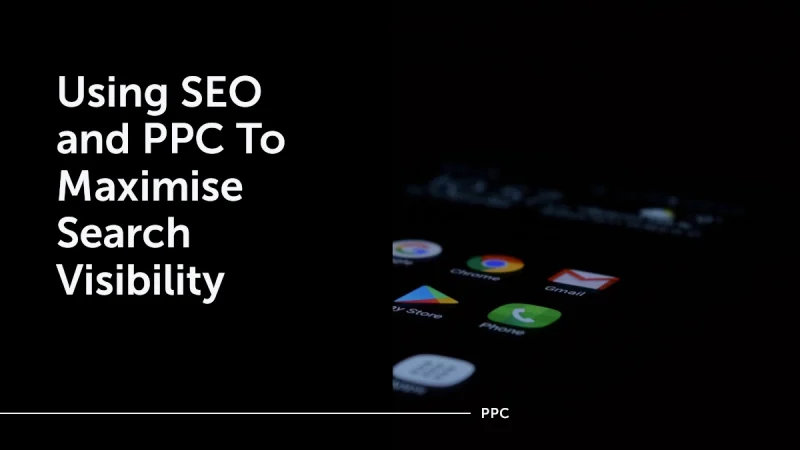Harness The Full Power Of Search Results.
Are you looking to maximise ROI for your online business through search engine marketing? Not sure how to get the best out of both SEO and PPC?
Let’s look at how we can drive quality traffic to your website by combining these well-known strategies.
What Will I Learn In This Guide? 🤔
- How to fully leverage search results.
- Retarget missed conversions with remarketing.
- How PPC data supports SEO.
- The benefits of utilising both PPC and SEO.
You’ll also learn PPC metrics such as – CPC, cost per click, CTR, click through ratio and the importance of conversion data.
Let’s get started 😎
Table of Contents
What is SEM, PPC and SEO Marketing?
Search engine marketing, SEM, is a modern and powerful method of digital marketing. The ways of getting your business listed on search engine results pages are through SEO, PPC and Local SEO – through local business listings.
Both SEO, Search Engine Optimisation, and PPC, Pay Per Click, target the most relevant and qualified individuals to your unique business offering.
SEO is a process used to optimise and address issues on your website that will, in turn, affect the rank of search keywords and phrases, for the better, on search engine results pages.
PPC or Pay Per Click is different to SEO as PPC concerns itself with the advertising you see on search engine results pages, social media platforms and other websites across the internet. PPC advertising, pay-per-click, is so-called because the advertiser pays these platforms when the user clicks upon the adverts that appear there.
If you are new to Digital Marketing, either SEO, PPC, or both, then please start by taking a look at our guide to hiring a digital marketing consultant.
An AI Business Case in Getting Found with Search
Let’s assume you have launched a fantastic product – AI software that recommends books based on your personality. You are excited to share your business idea with the world.
However, you have no idea how to share this product with as many potential users as possible.
Many businesses face a similar problem – a difficulty in being found by the right audience.
If your users cannot find you, it doesn’t matter how great your book recommendation AI is.
Digital Marketing is now the most cost-effective and results-driven strategy for many businesses looking to get better results and get found.
There are two popular digital marketing strategies businesses use to solve this problem:
- Search Engine Optimisation, for the ‘Organic’ search engine results (SEO)
- Pay Per Click, the paid-for search engine results (PPC).
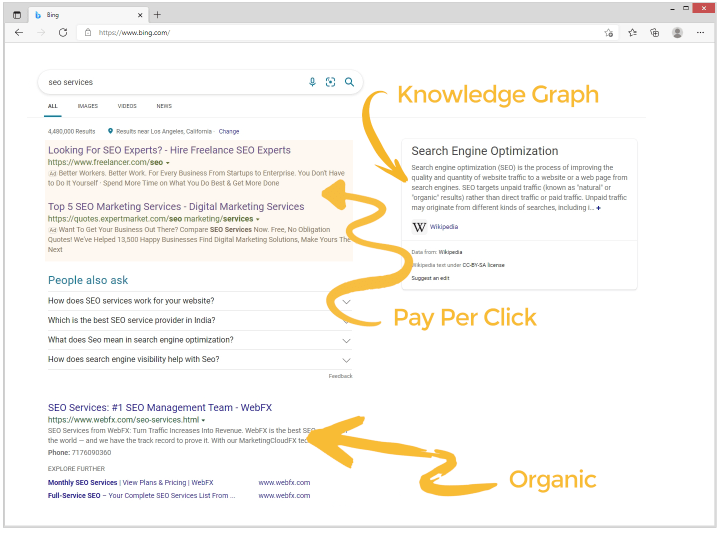
When used together, they improve your website traffic by dominating both organic and paid search results. These are undoubtedly the most effective ways to get found by a targeted audience.
Let’s start with looking at how PPC and SEO work together and examine the best practices for combining them.
The Business Benefits of Combining SEO and PPC
Combining SEO and PPC benefits include improved website visibility, an increase in the number of leads, and a boost in revenue.
Here’s how you can leverage them for your business.
Implementing SEO and PPC Together Means Better Search Engine Results
Improving your website with SEO increases the chance of ranking on the first page or even #1 position for one or more keywords you are targeting.
In addition, purchasing PPC ads for the same keyword allows your ad to appear on-page when someone is searching for that term or keyword.
If you do both of these strategies for a particular keyword, which means optimising your website and purchasing PPC advertising, you ensure that your brand dominates the search results.
That is, you have a higher chance of capturing those valuable and relevant clicks.
PPC Helps You Recover Missed Search Engine Clicks
Have you ever thought, if your brand already appears on #1 results for a particular keyword organically (naturally on a search engine), you don’t need to purchase a PPC ad for the same keyword?
After all, why appear on the same page twice?
A Google Study Research shows that organic rankings will not replace 89% of the traffic generated by ads if you stop ads for a particular keyword.

In other words, running PPC campaigns complement your organic SEO efforts. Besides, having two or more clickable results to your business on a single page increases your prospects of obtaining clicks.
When you combine them, you can recover more clicks and interest of visitors you otherwise might have missed.
Remarketing Allows You Yo Reach Previous Visitors
Even if your website is ranking well, due to SEO and PPC, many visitors may not take the desired action the first time they visit your website.
This is where Remarketing comes in to help retarget those visitors and nudge them towards greater awareness of your business.
When you combine your SEO with PPC remarketing, you can bring these visitors back to your site to complete the desired action at a later time.
Suppose someone is shopping for a solar heater on your website but wants some time to think and research about it.
You can purchase the PPC ads from Google to show them the same solar heater, later reminding them to return to your site and purchase.
The advantage of combining paid search with organic marketing for remarketing is that you can reach previous visitors.
Retargeting these previous visitors with a little encouragement to complete your conversion, buy a product, sign up for your service or complete your enquiry forms.
Without remarketing, one-time visitors may never return to you, completing their transaction, to perhaps forget about your business altogether.
PPC Quickly Allows You To Test New Keywords Before SEO
Search engine optimisation takes time, research, and technical know-how, which means effort and expense.
There are times when you think about targeting a topic with SEO and content marketing but are unsure if it would pay off.
One way to test the viability of a particular search keyword for SEO purposes is with Pay-per-Click.
Start with selecting a relevant keyword you think you can rank and convert for your business.
Set up a PPC campaign and monitor the results by seeing how your website performs.
Monitor campaigns by tracking key performance indicators (KPIs) and monitoring conversion rates and bounce rates.
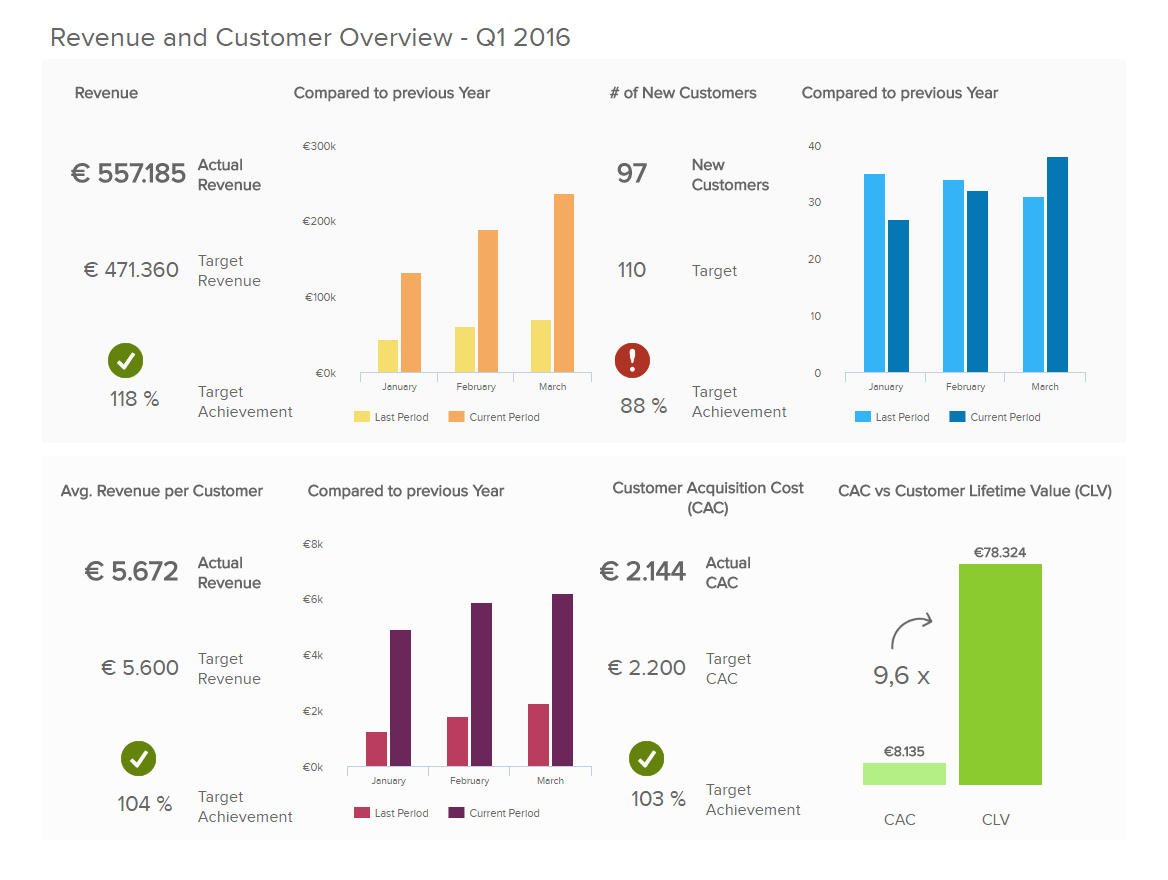
Source: Datapine
If your PPC campaign performs well, it could indicate that you should begin optimising your website using these keywords, phrases and topics for SEO and content marketing.
It is a great way to test the waters without investing significant time or revenue in considerably modifying your website, content, or online marketing approach.
Other KPI metrics you can track are:
- Click-Through Rate (CTR)
- Bounce or Exit Rate
- Time Spent on Site
- Conversion Rate
Leveraging PPC And SEO For Smarter Data-Driven Strategies
An additional benefit of having PPC and SEO work together is collecting an essential data set for decision-making.
SEO strategy is not an ‘instant on’ option, and it takes time to see results. PPC’s main advantage here is that PPC is almost instantly active and can give you valuable data today.
Metrics from SEO and PPC campaigns that you can obtain and track include:
- Organic performance metrics such as – Organic impressions and CTR and average ranking position from Google Search Console (or a keyword tracking tool)
- Combining this data with PPC metrics such as – CPC, Cost Per Click, CTR, Click Through Ratio and conversion data.
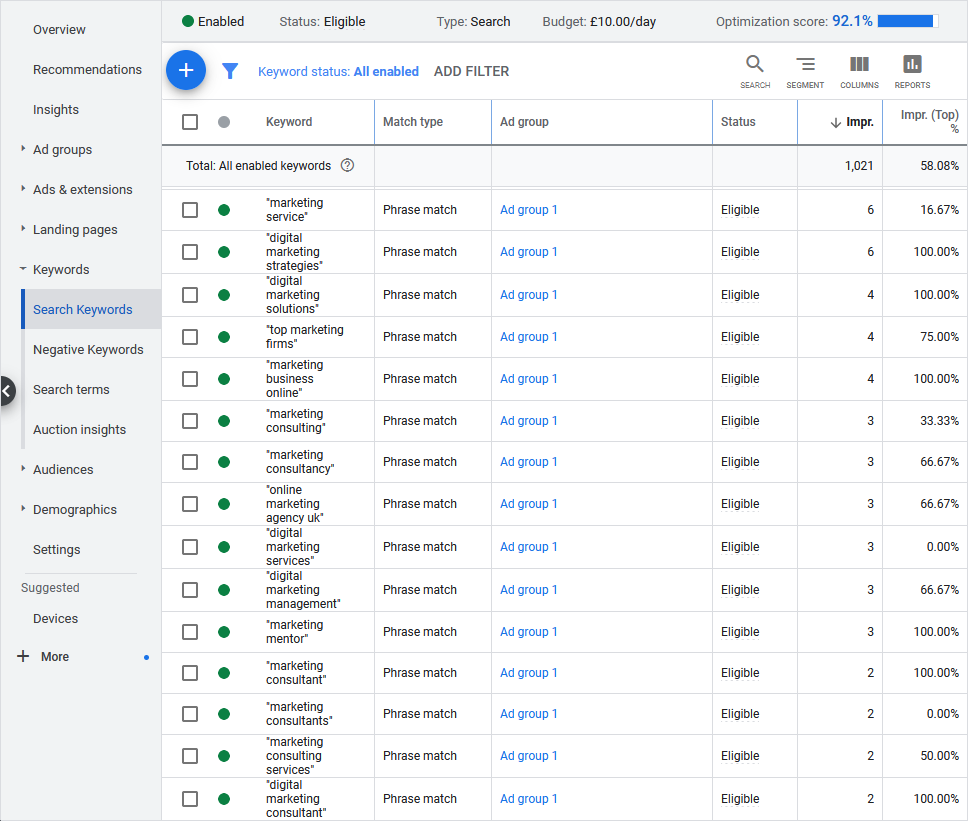
This data equips you to determine better keywords that are most effective in generating sales.
Conversely, you identify the keywords sending visitors to your website who are least likely to purchase or become a lead.
This data helps you make smarter decisions about your marketing campaigns and which changes you should be making to your website or landing pages.
4 Ways to Integrate SEO and PPC for Maximising Return On Investment
Now that you know what you can achieve by integrating SEO and PPC, it’s time to combine these two marketing vehicles for maximising ROI.
Fueling Your SEO Engine With PPC Data
If you are reading this, then the chances are that you are running PPC ad campaigns and want to know how to leverage this for optimum SEO.
PPC data tells you more about keywords that are converting visitors into customers.
You can use these keywords to target user intent and create relevant content throughout the buyer’s journey.
The additional data you will have at your disposal will help you boost sales while meeting the needs of your visitors.
Reduce PPC Spend, Improve CTR and Decrease CPC with On-Page SEO
SEO data can be beneficial when it comes to reducing PPC spend.
While the average cost per click can vary depending on your industry, you want to get the most number of clicks for your budget.
Reducing expenditure and improving results is perhaps the most significant benefit of running SEO and PPC side by side.
Now, can SEO help you achieve that? Yes. Here is how SEO can help you to reduce the PPC spend:
- Reduce cost by improving CTR and decreasing CPC
- Reduce cost and increase clicks by having an improved quality score
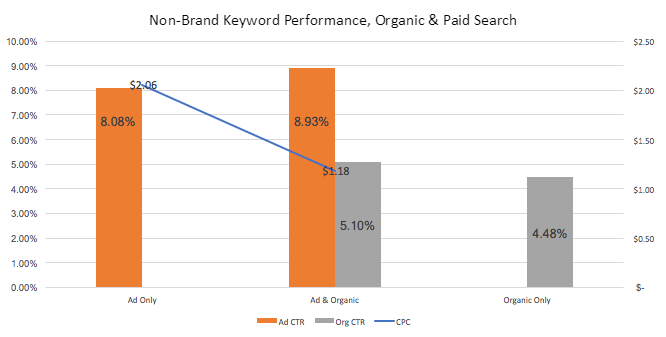
Source: Search Engine Land
Expand Reach By Sharing PPC Keywords With Organic Search
As we said, SEO techniques take time to render results, leaving you with a gap in your reach on search engine results pages.
Both PPC and SEO teams can identify and segregate keywords they plan to target based on the idea to expand your reach by targeting searches made where you have no natural or organic presence.
Sharing keyword responsibility and presence data between SEO and PPC teams allows the advertising teams to fill in the gaps your audience is searching for, giving you an expanded reach to your potential customers and clients.
Dominate Top SERPS To One-Up The Competition
Search Engine Results Pages, SERPS, have a limited real estate for results listings, ads and rich results.
Having an organic search results presence and running advertising on search engines gives you the edge over the competition in your business sector.
This kind of exposure helps you drive more targeted traffic, retarget visitors and improve conversion rates.
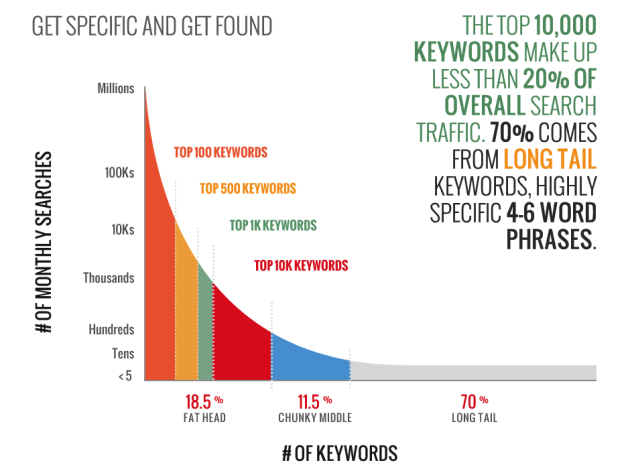
Source: Raven
With lower costs, better data increased traffic and exposure; you will get more of the desired actions you wish your audience to take.
Why Create A Marketing Plan That Combines SEO and PPC?
Having a comprehensive SEO strategy is extremely important to the long term success of your business online.
PPC campaigns are too very important in both the short term and long term.
Combining both SEO and PPC into your digital marketing strategy will give you
- Better, more comprehensive and accurate data about your business niche, keywords and customer behaviour.
- Lower marketing and advertising costs by improving ad campaign quality score.
- An increase in qualified, targeted and retargeted audience visits and repeat visits.
- Greater exposure to your brand and improved brand awareness for your audience.
- More desired actions taken by potential customers leading to better revenues and profits for your business.
Using PPC and SEO Together: The Final Word
The facts are that business is done online and a very high percentage of us start our online journey with a search engine, like Google.
Using search, partner networks and social media, both paid for and organically, will increase your website traffic and establish a solid online presence for your business.
The benefits of using both PPC and SEO together are unrefutable. Whilst it’s becoming increasingly difficult, to remain competitive and increase online visibility, leveraging the right marketing tactics can be the difference between your success and failure.
Are you new to either SEO, PPC, or both? If you are looking for a professional agency that helps combine the two into a successful internet marketing plan, Orebix can help.
Being a full-service internet marketing agency, our digital marketing consultants can combine PPC and SEO for your business and achieve real results.
Want to know more about how we can help you improve your website’s search engine visibility, retarget visitors to your site, test new keywords and make smarter marketing decisions using SEO and PPC together? Contact Us
Find out more about your website SEO.
Book your FREE consultation today!
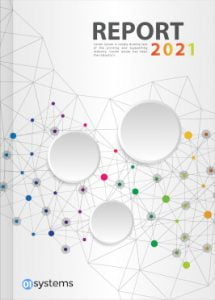
90% of website content gets no traffic from Google. 70% of small businesses do not employ an SEO strategy.
Learn how we can help improve your business online presence through SEO, content and social media.
We help create your digital footprint.

